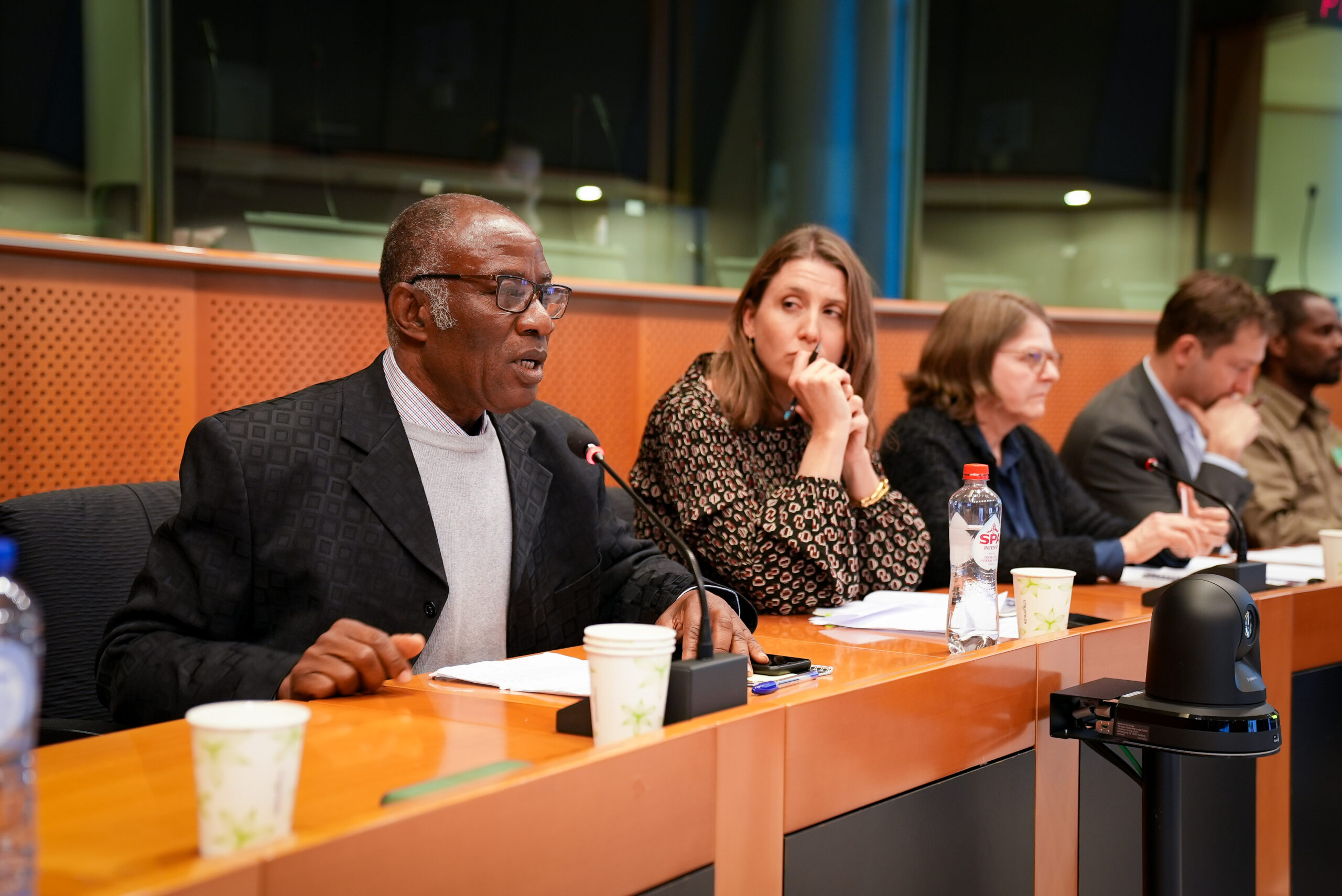In January 2023 Daniel Amponsah spoke in the European Parliament to share his views on CSDDD and how it impacts smallholder farmers that supply Europe. © Steven De Winter / Solidaridad
It’s important to celebrate the achievement and to clarify accompanying measures to make implementation possible and impactful. To support the next stages the Fair Trade Advocacy Office, Fairtrade International, the Rainforest Alliance and Solidaridad published a paper on information and (financial) support for smallholder producers around the world.
“Living income is a human right and as producers we appreciate the EU for recognizing that and making it known in the CSDDD. This means companies we work with will be committed to ensuring poverty among farmers is reduced. We however call on EU again to make sure there are measures to support the implementation of the CSDDD.”
Daniel Amponsah, Asunafo North Municipal Co-operative Cocoa Farmers (Ghana)
Living incomes, responsible purchasing, and leaves no space for cut-and-run
Key elements in the Corporate Sustainability Due Diligence Directive (CSDDD) are the recognition of Living Wage and Living Income as human rights that companies need to take into account, as well as the clarification of the importance of addressing the impact of the company’s purchasing practices. Another key improvement is the clarification that disengagement from suppliers under the law should only happen as a last resort and in a responsible manner. Finally, we see stronger wording on meaningful stakeholder engagement, which is crucial for impactful human rights and environmental due diligence.
“The CSDDD requires companies not only to avoid human rights and environmental issues in their value chains, but to fix them. With the right accompanying measures in place, smallholder farmers around the world can expect to be supported in addressing the root causes of unsustainable practices, such as poverty.”
Catarina Vieira, Solidaridad
“Today’s landmark legislation marks a crucial step towards corporate accountability. However, for the CSDDD to make a real difference, we need strong backing and practical measures. Let’s stand by and support smallholder farmers to ensure the costs of investing in sustainability are proportionally shared along the value chain, and farmers have the means to improve their practices for human rights and the environment.”
Christian Hohlfeld, Rainforest Alliance
Support and information are needed for proper implementation
As we move towards implementation, suppliers in general, and smallholders in particular, cannot be expected to shoulder the burden of this directive’s ambition by themselves. Therefore it is crucial that:
- The guidelines and model contract clauses are built on internationally recognised norms and guidance and make it clear that it is not a proper implementation to put cost and responsibilities for human rights and sustainable production on suppliers without adequate support.
- The EU and Member States commit to provide financial support and information to different supply chain actors, civil society, and producers throughout the world. We believe that the EU Delegations play a key role in ensuring that farmers, workers and civil society organizations can use this law and that supply chain actors in vulnerable positions do not get left without support.
We elaborate on these recommendations in our recently published paper Supporting the implementation of the EU Corporate Sustainability Due Diligence Directive in global supply chains involving smallholders and their communities.
“With the CSDDD and similar due diligence initiatives gaining traction globally, I look forward to a growing number of companies to start looking at their business models, purchasing practices, codes of conduct and contracts to ensure alignment with responsible business conduct norms.”
Meri Hyrske-Fischer, Fairtrade International
The law’s genesis was complex and curvy
The human rights and environmental due diligence that will now be mandatory builds on internationally recognised norms developed by the UN and the OECD that have existed since 2011, as well as established good practice and guidelines.
In February 2022 the European Commission published a legislative proposal inspired by an Own Legislative Report by the European Parliament in 2021. The draft law had big potential but lacked clarity on some key elements, thus risking negative unintended consequences for smallholders and other actors in global supply chains, whom the law is set out to protect.
Much thanks to the hard work of the European Parliament, these elements were addressed and we now have a law with much better potential to lead to positive change for smallholders, workers and artisans around the world.
Despite the last minute disregard to the negotiations from some member states with unilateral changes to weaken the final text in March, the CSDDD marks a key step forward for business accountability.
“We celebrate this key step and urge the European Commission to develop clear guidance on key topics such as purchasing practices, meaningful stakeholder engagement and how to respect the right to living wages and living incomes, to ensure proper implementation. It is imperative that the costs and responsibilities do not end up only on the shoulders of suppliers.”
May Hylander, Fair Trade Advocacy Office

